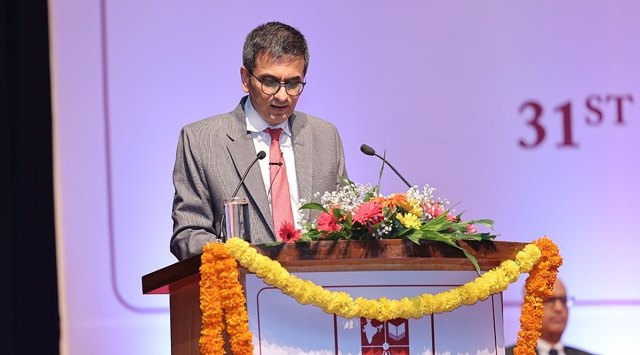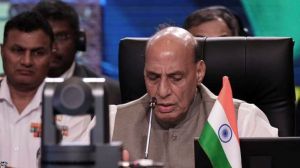Chief Justice of India D Y Chandrachud has stressed the importance of becoming a good person for becoming a good lawyer, in an appeal that came against the backdrop of the legal system making major strides towards gender inclusivity.

It may be recalled that recently the Supreme Court released a handbook titled ‘Combating Gender Stereotypes’ to assist the legal community in identifying and combating gender stereotypes.
Story continues below this ad
“Institutions are not infallible. Although legal education and the legal profession have made great strides in enabling gender inclusivity, much remains still to be done. Young lawyers such as you are sure to challenge the status quo when it is unfair. Being a good person and being a good lawyer are not mutually exclusive. And if you ever find yourself in a situation when one comes at the cost of the other, I urge you to become a good person first,” he said.
“Paper books, which is all of 16,318 pages, 24 volumes of case documents with 13,525 pages, 30 volumes of the case law compilations with 16, 370 pages, written submission of the petitioners with 960 pages and written submission of the respondents with 660 pages, all making today a total record of 47,835 pages—the entirety of the record—is digitised and scanned and all the judges on the bench are paperless and almost every member of the bar is paperless as well. The graduating class are the people who are driving the change. Because technology in your hands is what it is for fish in water,” he added.
Justice Chandrachud also recalled how his late former wife, who was the member of the bar back in the early 2000, was asked to find a husband who could do household chores for her.
“When my late former wife was a member of the bar, she went for a job interview at a law firm. She asked what the working hours are going to be. Well, she was told that the working hours are 24/7 and 365 days. Then she asked what the women with families would do. She was told that there is no family life if she wanted to join the law firm and that she should better find a husband who could do her chores at home. Although this was back in 2003-04, I think things are changing. I come before you with a sense of optimism,” he said, adding that four of his five law clerks were women.
Story continues below this ad
“It’s not uncommon for my law clerks to give me a call in the morning and request to work from home because of menstrual cramps. I would allow them to work from home. Regardless the type of lawyer you become, do your bit to make ours a more inclusive profession. The inevitable and obvious fact is that our profession is becoming a focal point for more and more women lawyers who are going to transform society,” he said.
Justice Chandrachud also said the advent of National Law Schools in India had provided opportunities for students from non-legal backgrounds to pursue legal education. Earlier, law students were mostly people who had lawyers in their families.
“With the advent of NLSIU, the doors of the legal profession were thrown open and more students without any connection to the legal community chose to pursue law,” he said.
The convocation was also marked by the presence of Her Royal Highness Princess Sonam Dechan Wangchuck, founding president of JSW School of Law, Bhutan, and president of the Bar Council of Bhutan.
Story continues below this ad
This year 1,699 students—eight PhDs, 59 Masters of Public Policy, 68 Masters of Law, 74 Bachelors of Arts and Laws (Honours) and 1,490 from the online and hybrid education programmes—graduated from NLSIU.









